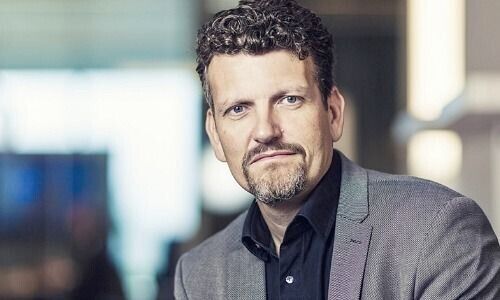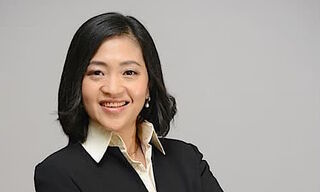Over the course of the next decades, the dividend will become a demographic deficit as the populations of all major economies will shrink, Henk Grootveld writes in an essay for finews.first.
This article is published on finews.first, a forum for authors specialized in economic and financial topics.
For the last 60 years, most countries have enjoyed an unprecedented economic tailwind: the demographic dividend. Its origin was the post-WWII baby boom, which drove a surge in the working-age populations of Western economies, and it was further strengthened as more women entered the workforce. The dividend grew as globalization took effect, enabling developed-world businesses to outsource manufacturing to immense labor pools in China and Eastern Europe.
Our analysis illustrates the scale of this phenomenon: these four forces provided companies based in North America, Europe and Japan with a labor pool growing at an annualized rate of 10 percent and sometimes even 20 percent, with the greatest growth occurring in the last four decades. Through sheer numbers and economic liberalization, the demographic dividend underpinned economic growth and engendered an environment of low or even dismal inflation.
«Are there potential solutions to the global labor supply and aging challenge? »
Fast-forward to the 2020s, and this tailwind has not only eased, but it is also beginning to reverse. Over the course of the next six decades, the dividend will become a demographic deficit as the populations of all major economies will shrink, or, in some cases, continue to shrink, along with their working-age cohorts.
China, the world’s primary source of outsourced labor in recent decades, is home to a population aging faster than those in the West as the legacy of its one-child policy manifests, and the declining numbers of its workforce limit further outsourcing potential for greying major economies. This is one reason why we estimate that the global workforce will shrink by an average of 4-5 percent each year from now on until at least the end of this century.
Of course, this will impact GDP growth, inflation and the way people work in the coming decades, as well as labor policies and practices.
Are there potential solutions to the global labor supply and aging challenge? There are some, like outsourcing to India or Africa or speeding up the automation and robotization of our economies, but none of them would appear to be the magic wand we might be hoping for. Societies simply need to prepare for populations that are older and shrinking in number - with fewer workers - and the United Nations and World Health Organisation assert that we need to do so, right now.
Perhaps this is one reason why they have named 2021-2030 as the decade of healthy aging and released a landmark report on combating ageism along with the urgent recommendation to invest in the necessary expansion in primary, home, long term, and palliative care.
«The next item on policymakers’ agenda should clearly be overhauling the financing of pension»
So, what could be the potential changes that would come along with our aging society? For a start, we believe that aging, together with a peak in globalization and the current lose fiscal and monetary discipline has put inflation back on the agenda and central banks, governments and companies need to adapt and prepare.
The next item on policymakers’ agenda should clearly be overhauling the financing of pension and adjust retirement ages in line with the 100-year or even 120-year lifespans that optimists think we will likely enjoy. The pay-as-you-go (PAYG) financing of pensions used by many governments as a first, and sometimes only, pension pillar, works pretty well with stable demographics in society but becomes unaffordable when the ratio between workers and retirees changes as much as it does today.
We expect that saving for our own pension will become the norm going forward and that the individual Defined Contribution (DC) systems will be the preferred route as they already have been in countries including Australia and the US.
«We definitely need to prepare ourselves for the unavoidable hangover»
Additionally, we need to radically reduce healthcare costs by leveraging digitalization, targeting more prevention, and move to a better reward system than today’s fee-for-service model. We believe that Covid-19 has finally pushed the conservative healthcare system into the digital 21st century and that digital tools and technologies are able to bring better care to more people at a lower cost.
From telehealth to connected care and fully automated pharmacies to wearables that measure and control your diabetes, new technologies are being tested and rolled out everywhere, as was the case with the introduction of the internet in the 1990s.
The baby boom party for our economy is clearly over and we need to prepare ourselves for the unavoidable hangover.
Henk Grootveld is Head of Trends Investing at Lombard Odier Investment Managers. Prior to joining Lombard Odier IM in January 2020, he was at Robeco, where he led the Trends Investing Equity team and most recently managed one of the firm's flagship funds. Earlier, he worked at Aegon Asset Management and ING Barings. He has more than twenty years of experience in thematic investing.
Previous contributions: Rudi Bogni, Peter Kurer, Rolf Banz, Dieter Ruloff, Werner Vogt, Walter Wittmann, Alfred Mettler, Robert Holzach, Craig Murray, David Zollinger, Arthur Bolliger, Beat Kappeler, Chris Rowe, Stefan Gerlach, Marc Lussy, Nuno Fernandes, Richard Egger, Maurice Pedergnana, Marco Bargel, Steve Hanke, Urs Schoettli, Ursula Finsterwald, Stefan Kreuzkamp, Oliver Bussmann, Michael Benz, Albert Steck, Martin Dahinden, Thomas Fedier, Alfred Mettler, Brigitte Strebel, Mirjam Staub-Bisang, Nicolas Roth, Thorsten Polleit, Kim Iskyan, Stephen Dover, Denise Kenyon-Rouvinez, Christian Dreyer, Kinan Khadam-Al-Jame, Robert Hemmi, Anton Affentranger, Yves Mirabaud, Katharina Bart, Frédéric Papp, Hans-Martin Kraus, Gerard Guerdat, Mario Bassi, Stephen Thariyan, Dan Steinbock, Rino Borini, Bert Flossbach, Michael Hasenstab, Guido Schilling, Werner E. Rutsch, Dorte Bech Vizard, Adriano B. Lucatelli, Katharina Bart, Maya Bhandari, Jean Tirole, Hans Jakob Roth, Marco Martinelli, Thomas Sutter, Tom King, Werner Peyer, Thomas Kupfer, Peter Kurer, Arturo Bris, Frederic Papp, James Syme, Dennis Larsen, Bernd Kramer, Ralph Ebert, Armin Jans, Nicolas Roth, Hans Ulrich Jost, Patrick Hunger, Fabrizio Quirighetti, Claire Shaw, Peter Fanconi, Alex Wolf, Dan Steinbock, Patrick Scheurle, Sandro Occhilupo, Will Ballard, Nicholas Yeo, Claude-Alain Margelisch, Jean-François Hirschel, Jens Pongratz, Samuel Gerber, Philipp Weckherlin, Anne Richards, Antoni Trenchev, Benoit Barbereau, Pascal R. Bersier, Shaul Lifshitz, Klaus Breiner, Ana Botín, Martin Gilbert, Jesper Koll, Ingo Rauser, Carlo Capaul, Claude Baumann, Markus Winkler, Konrad Hummler, Thomas Steinemann, Christina Boeck, Guillaume Compeyron, Miro Zivkovic, Alexander F. Wagner, Eric Heymann, Christoph Sax, Felix Brem, Jochen Moebert, Jacques-Aurélien Marcireau, Ursula Finsterwald, Claudia Kraaz, Michel Longhini, Stefan Blum, Zsolt Kohalmi, Karin M. Klossek, Nicolas Ramelet, Søren Bjønness, Andreas Britt, Gilles Prince, Salman Ahmed, Stephane Monier, and Peter van der Welle, Ken Orchard, Christian Gast, Jeffrey Bohn, Juergen Braunstein, Jeff Voegeli, Fiona Frick, Stefan Schneider, Matthias Hunn, Andreas Vetsch, Fabiana Fedeli, Marionna Wegenstein, Kim Fournais, Carole Millet, Ralph Ebert, Swetha Ramachandran, Brigitte Kaps, Thomas Stucki, Neil Shearing, Claude Baumann, Tom Naratil, Oliver Berger, Robert Sharps, Tobias Mueller, Florian Wicki, Jean Keller, Niels Lan Doky, Karin M. Klossek, Ralph Ebert, Johnny El Hachem, Judith Basad, Katharina Bart, Thorsten Polleit, Bernardo Brunschwiler, Peter Schmid, Karam Hinduja, Zsolt Kohalmi, Raphaël Surber, Santosh Brivio, Mark Urquhart, Olivier Kessler, Bruno Capone, Peter Hody, Lars Jaeger, Andrew Isbester, Florin Baeriswyl, and Michael Bornhaeusser, Agnieszka Walorska, Thomas Mueller, Ebrahim Attarzadeh, Marcel Hostettler, Hui Zhang, Michael Bornhaeusser, Reto Jauch, Angela Agostini, Guy de Blonay, Tatjana Greil Castro, Jean-Baptiste Berthon, Marc Saint John Webb, Dietrich Goenemeyer, Mobeen Tahir, Didier Saint-Georges, Serge Tabachnik, Rolando Grandi, Vega Ibanez, Beat Wittmann, David Folkerts-Landau, Andreas Ita, Teodoro Cocca, Michael Welti, Mihkel Vitsur, Fabrizio Pagani, Roman Balzan, Todd Saligman, Christian Kaelin, Stuart Dunbar, Fernando Fernández, Lars Jaeger, Carina Schaurte, and Birte Orth-Freese, Gun Woo, Lamara von Albertini, Philip Adler, Ramon Vogt, Gérard Piasko, Andrea Hoffmann, Niccolò Garzelli, Darren Williams, Benjamin Böhner, Mike Judith, Gregoire Bordier, and Jared Cook.






















